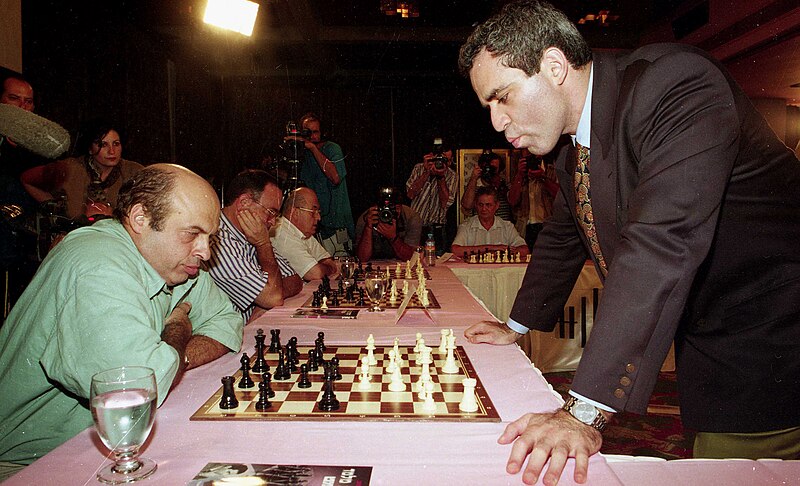1. Adjective (stressed): ‘whole,’ ‘entire,’ ‘all’
קאַספּאַראָוו ווערט פֿאַררעכנט ווי דער בעסטער שאַכשפּילער אויף גאָר דער וועלט .
[KASPÁROV VERT FARRÉKhNT VI DER BÉSTER ShÁKhShPILER AF GOR DER VELT <AF DER GÓRER VELT>.]
Kasparov is considered the best chess player in all the world.
מירעלע האָט נישט געפֿונען די שפּילקע, כאָטש זי האָט געזוכט אין גאָר דעם הויז .
[MÍRELE HOT NIShT GEFÚNEN DI ShPÍLKE, KhOTSH ZI HOT GEZÚKhT IN GOR DEM HOYZ <ÍBERN GANTSN HOYZ>.]
Mirele couldn’t find the pin, although she searched the entire house.
2. Adverb (stressed): ‘very,’ ‘quite’
שמעון האָט שוין פֿאַרדינט גאָר אַ סך געלט.
[ShÍMEN HOT ShOYN FARDÍNT GOR <ZÉYER> A SAKh GELT.]
Shimen has already earned quite a bit of money.
דאָס איז געווען גאָר אַ גוטע בשׂורה!
[DOS IZ GEVÉN GOR A GÚTE PSÚRE!]
That was very good news!
חנה איז אַ גאָר־גאָר קלוגע פֿרוי.
[KhÁNE IZ A GOR-GOR <GOR ShTARK/BIZ GOR> KLÚGE FROY.]
Khane is an extremely smart woman.
3. Adverb (stressed): ‘completely,’ ‘totally,’ ‘altogether’
איציק האָט געטראָגן אַ גאָר שוואַרץ העמד.
[ÍTZIK HOT GETRÓGN A GOR ShVARTS HEMD.]
Itzik wore a totally black shirt.
.מיר זענען געזעסן גאָר פֿאָרנט
[MIR ZÉNEN GEZÉSN GOR <HET> FORNT.]
We sat all the way up front.
דער בעטלער אין דער אונטערבאַן האָט זיך אויפֿגעפֿירט גאָר משוגע.
[DER BÉTLER IN DER ÚNTERBAN HOT ZIKh ÚFGEFIRT GOR MEShÚGE.]
The beggar in the subway acted completely crazy.
זייער טאַטע איז גאָר זעלטן אין דער היים.
[ZÉYER TÁTE IZ GOR ZELTN <KIMÁT KEYN MOL NIShT> IN DER HEYM.]
Their father is hardly ever at home.
4. Adverb (unstressed): ‘unexpectedly,’ ‘surprisingly’
כ׳האָב גאָר געמיינט אַז דאָס עסן וועט זײַן אַ ביסל געשמאַקער.
[Kh’HOB GOR GEMÉYNT AZ DOS ESN VET ZAYN A BISL GEShMÁKER.]
Somehow [= unexpectedly] I thought the food would taste better.
אַזוי גאָר!? ביסט זיכער וועגן דעם?
[AZÓY GOR?! BIST ZÍKhER VEGN DEM?]
Really!? Are you sure about that?
5. “not at all” (unstressed) [can also mean ‘unexpectedly,’ ‘surprisingly,’ as in #4 above]
* Note that in this context, גאָר נישט is written separately, as opposed to גאָרנישט, which means ‘nothing,’ and is written as one word
כ׳האָב גאָר נישט געוווּסט אַז סימע וועט דאָ זײַן.
[Kh’HOB GOR NIShT GEVÚST AZ SÍME VET DO ZAYN.]
I had no idea that Sime would be here.
דוד װיל גאָר נישט אַהיימקומען אויף די יום־טובֿים.
[DÓVID VIL GOR NIShT AHÉYMKUMEN AF DI YONTÓYVIM.]
Dovid doesn’t want to come home for the holidays at all.
6. “all or nothing” (stressed)
אין די פֿאַרהאַנדלונגען ווילן ביידע צדדים אָדער גאָר אָדער גאָרנישט.
[IN DI FARHÁNDLUNGEN VILN BÉYDE TSDÓDIM ÓDER GOR ÓDER GÓRNIShT.]
Both sides want all or nothing in the negotiations.


Artículos Relacionados: